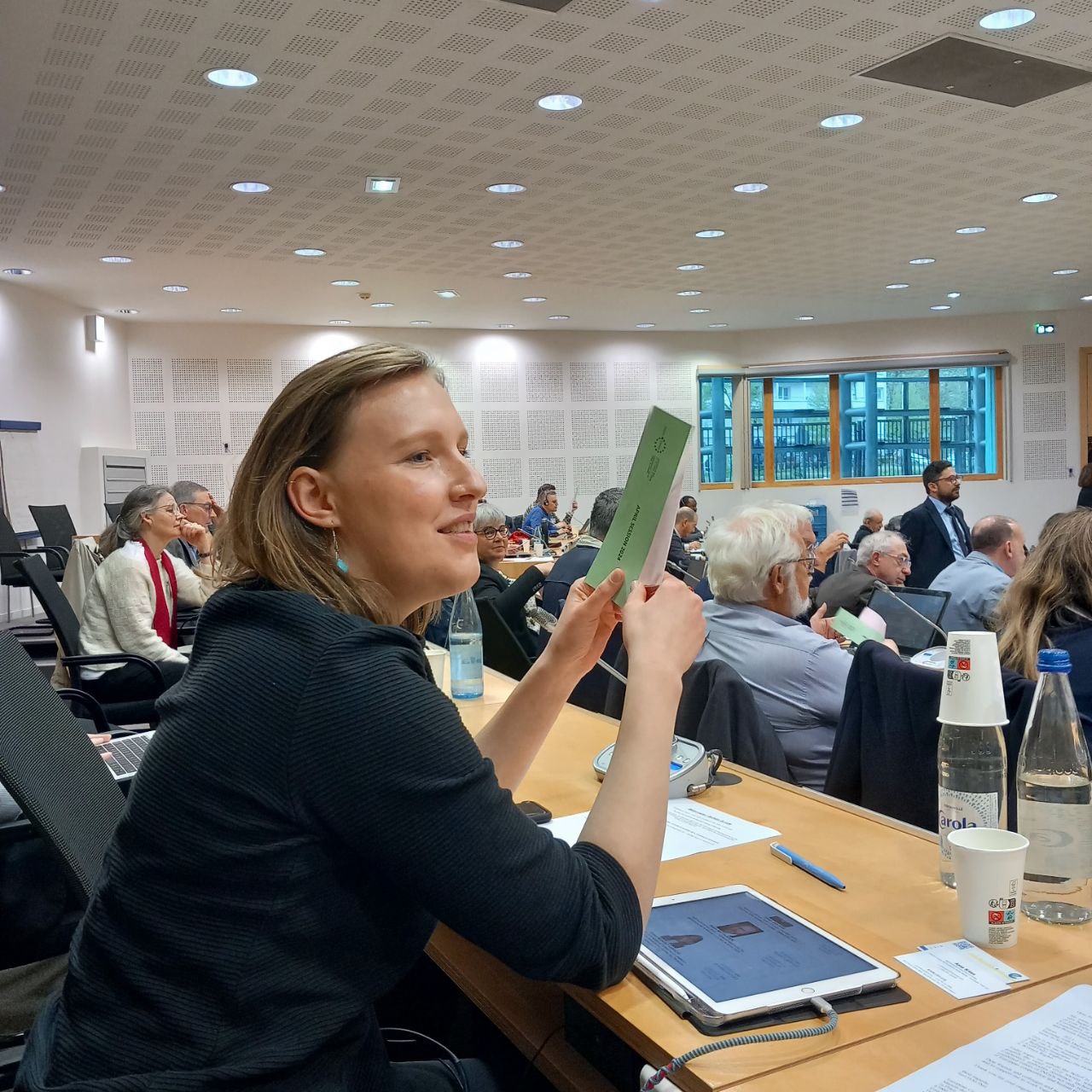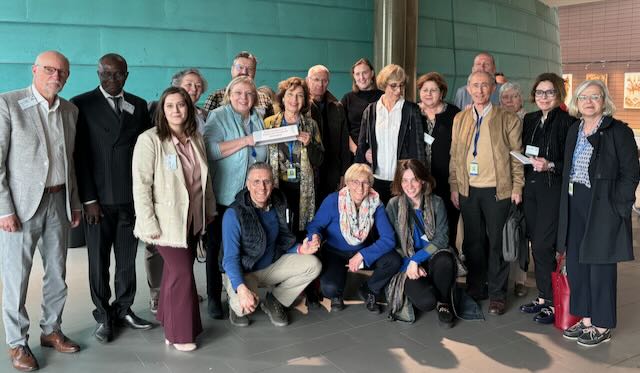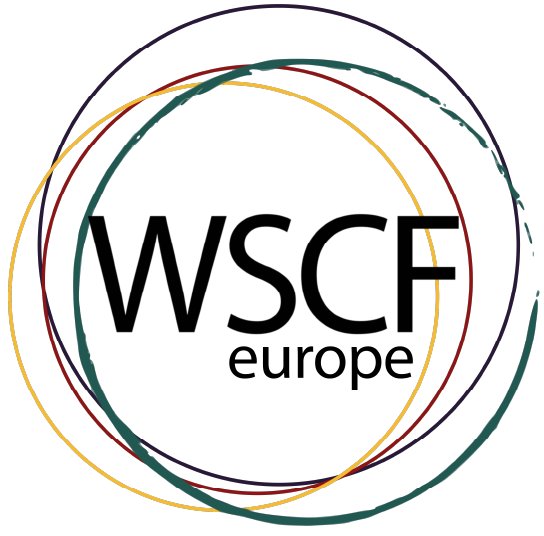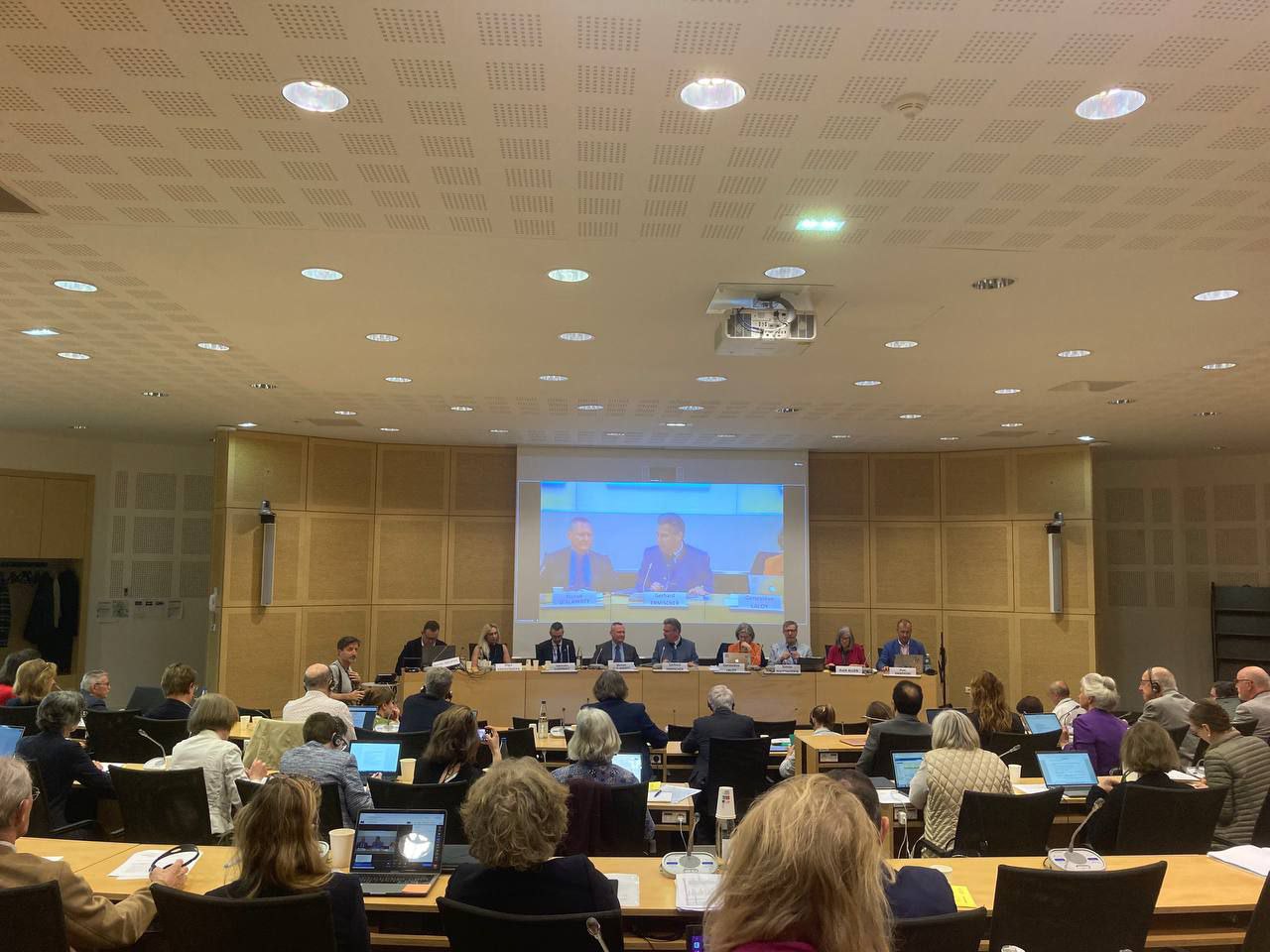From the 8th until the 10th of April the Conference of INGOs (CINGO) at the Council of Europe met for their Spring Session in Strasbourg. As WSCF-Europe has participatory status with the CINGO Henriette, our Chairperson, and Serena, our Regional Secretary, traveled there and got to know CINGO, its structures and procedures, as well as numerous member organizations.
What is the CINGO? The Conference of International Non-Governmental Organisations (INGOs) of the Council of Europe is the representative body of the INGOs enjoying participatory status with the Council of Europe. The Conference facilitates the participation of organised civil society in the work of the Council of Europe. It serves as a platform where civil society can interact with the Council of Europe in the attainment of its goals. It also promotes participatory democracy, active citizenship and freedom of association. Read more about it here.



An exchange with the new Commissioner for Human Rights, Mr Michael O’Flaherty (link to speech) pledging to prioritise the defence of civil society, as well as the end of mandate activity report presented by the President were the highlights of the first part of the Spring session of the Conference of INGOs (CINGO) that took place on 8 April 2024.
The second part of the Session on 9-10 April was devoted to the election of the Conference’s governing bodies, the president, vice presidents and standing committee members. Gerhard Ermischer was re-elected President to lead the Conference for another three year mandate together with a new Standing Committee composed of five women and five men. Their work will start immediately on the preparation of the three-year strategic plan for 2025-2027 to be finalized and adopted at CINGO’s next session in the Autumn. Here you can find information about the elected president, vice presidents and members of the Standing Committee.
Furthermore, the Conference dealt with the final activity reports of the thematic committees coming to an end, and the approval of eight new committees to deal with: Inclusive Territories, Environment and Health; Rights of the Child in Europe; Education for Democracy; Human rights, democracy and artificial intelligence; Interreligious and Interconvictional Dialogue; Migration Issues; NGOs as advocates for gender equality and women’s rights; Sports and Human Rights. During the Assembly Henriette and Serena participated in some of the Committee Meetings. For the upcoming future WSCF-Europe will be represented in the Committee for Interreligious and Interconvictional Dialogue, Migration Issues, as well as in the Committee NGOs as advocates for gender equality and women’s rights.
The Conference also discussed elements for a strategy on gender equality, approved a communication on migration and the electoral context, and discussed the possible creation of a mechanism to identify and follow problematic trends regarding the civic space in Europe. In preparation of its new three-year strategic plan for 2025-2027 which will be adopted at the Autumn session, CINGO started a series of consultations; it thus held an exchange of views with: Matjaz Gruden, Director for Democracy, who presented the possible implications of the Reykjavik summit for the future of cooperation between the Council of Europe and civil society and Mrs Tanja Kleinsorge, Head of Reykjavik Process and Environment Department, who briefed CINGO about the work of the new Department and Inter-Secretariat Task Force on the Environment.

